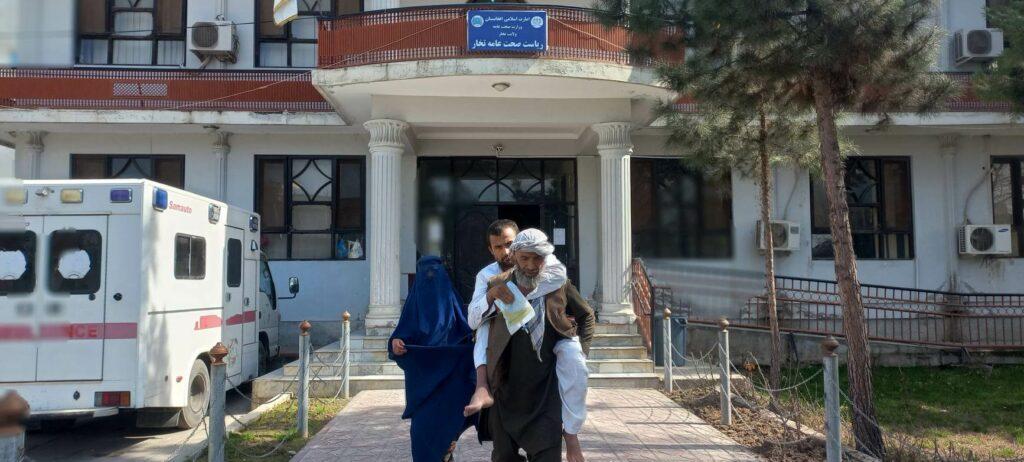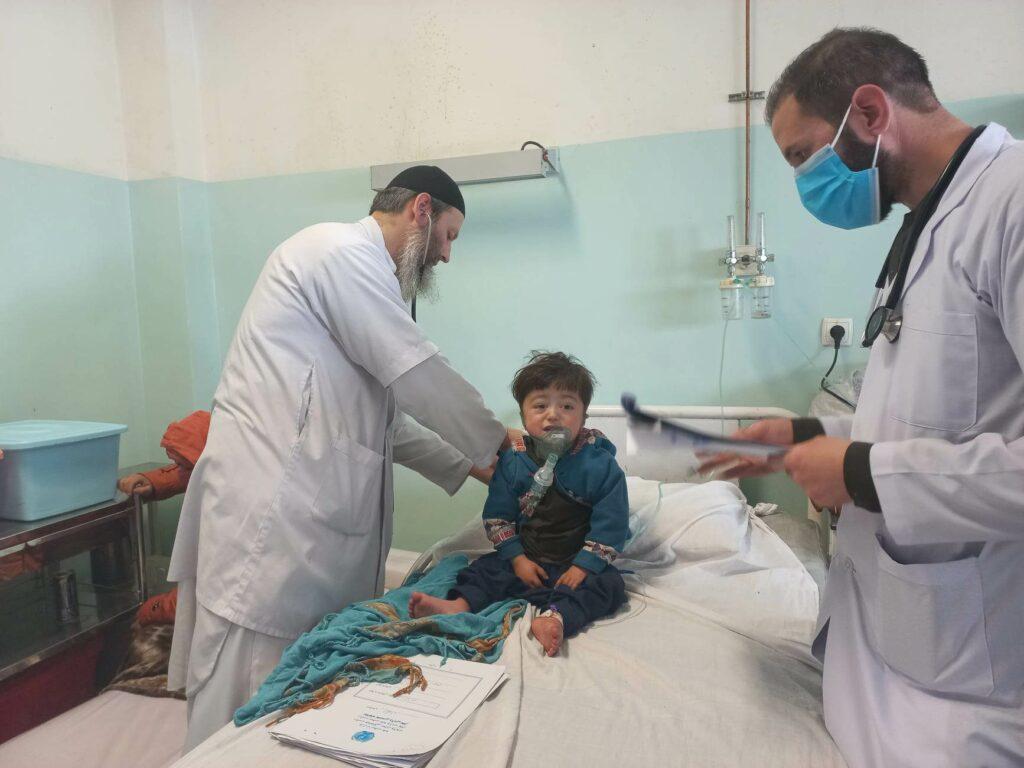TALOQAN (Pajhwok): Residents of the remote districts of northern Takhar province complain about the lack of access to health services in their areas.
They say conflict and insecurity in the country over the past 20 years has deprived them of basic health services.
Widespread poverty, economic hardship and a shortage of health centres have created a host of serious problems for them, grumble residents of far-flung localities.
Hamidullah, an inhabitant of Rustaq district who brought his ailing mother and wife for treatment to Taloqan, said: “I have to take care of two patients and visited several health centers in the district, including the public hospital. But the patients did not get better because they did not receive proper treatment for lack of facilities.
“Eventually, we came to Taloqan, where I took the patients to a private hospital despite my weak economic situation. I’m wondering what to do now,” he commented.
Hamidullah added: “The area we are living in (Dasht-i-Mirzayee) has no health centers and the facilities located in the district are unable to meet the needs of all patients due to lack of advanced equipment.”
Asking the government to address their problems, he said: “My daily income is below 50 afs. Since my patients were not treated well at the government hospital, I have brought them to a private hospital here. I’m worried about payments.”
Ghulam Mohammad, another resident, recalled: “My child was diagnosed with lumbar disc disease two years ago after a traffic accident.
“Although he needs medical treatment, the public hospital in Takhar has failed to take care of him in these two years. Now private hospitals are demanding 110,000 afghanis for his treatment and I don’t have this amount.”
He has shared the issue with the Public Health Department.
Fateullah Dawlatyar, a civil society activist in Dasht-i-Qala district, said: “Over the past 20 years, the district has been a battleground. We witnessed conflict every day and suffered human and financial losses. Currently we have no access to any kind of facilities.”
He said the previous government paid no attention due to insecurity in their district, and many times they witnessed the loss of mothers during childbirth.
Eng. Abdullah, another civil activist, regretted conflict had caused a lot of deprivations in the country. Remote areas in particular had been deprived of health centers, he noted.
The activist chided the previous government for failing to pay enough attention to resolving health problems.
He said people in most areas of the district were facing health problems. They expected the current government to take action to address their concerns, he added.
According to him, constructing health centers, funding and equipping them in remote areas will address people’s problems.
Sadam Hussain Bashash, a social worker in Takhar, said residents of Mawarayee Koccha were among the most deprived people who did not have access to electricity, clean drinking water and health centers.
He claimed the people of remote villages of the district often lost their relatives to the lack of health centers. The current government needed to pay attention to solving their problems, especially health issues, he believed.

Director of Public Health Dr Abdul Qahar Ahmadi told Pajhwok a survey of this department found 25 health centers in remote areas of the province were inactive due to lack of staff and facilities.
He said efforts were underway to address such problems in remote areas, as well as the provincial capital.
He revealed the ministry was striving to provide health services. He promised 5,000 health centers would be established across the country, including remote areas of Takhar, so that people could benefit from the provision of the facilities.
sa/mud







GET IN TOUCH
NEWSLETTER
SUGGEST A STORY
PAJHWOK MOBILE APP